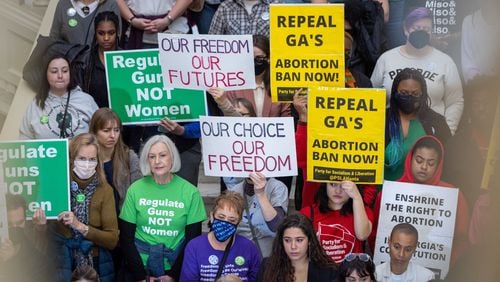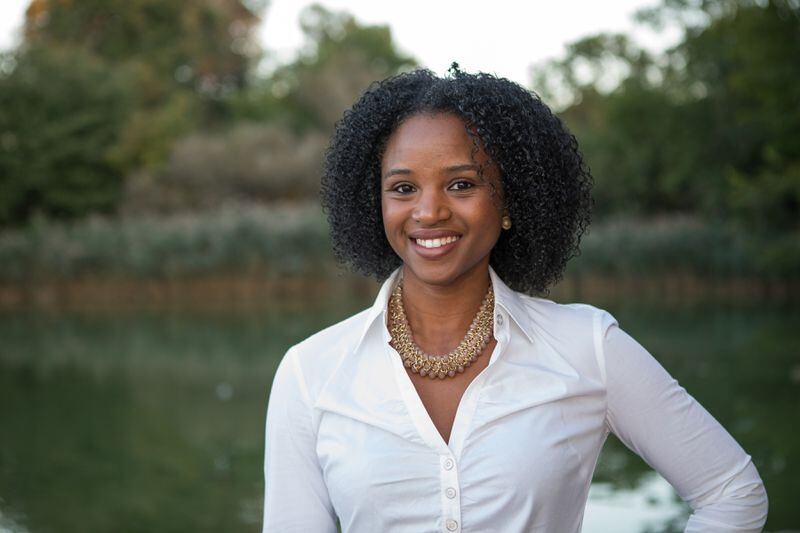The first presidential debate will take place right here in our own backyard Thursday night. Right here in Atlanta. While President Joe Biden and his predecessor will go head to head on a variety of topics, some issues are not up for debate. There are things our working families need and need right now.
Affordable and accessible health care
Healthcare is a fundamental human right, not a privilege reserved for the affluent. We demand universal health care that is accessible, affordable and inclusive of mental health services and reproductive health care. Our lives should not be jeopardized because of inadequate health care coverage or discriminatory practices.
Credit: Handout
Credit: Handout
Since 2008, nine hospitals in Georgia have closed. As of April, 18 out of 30 critical access hospitals in rural Georgia were at risk of shutting down. This is putting the health of millions of Georgians at risk, and reducing access to emergency care and regular health checkups, which could prevent future emergencies.
When Wellstar’s Atlanta Medical Center closed its doors in November 2022, it left a gaping hole in health care for millions in metro Atlanta. It removed access to physical and mental health care in the heart of Atlanta. AMC’s closure led to an overload of patients at Grady Memorial Hospital, the city’s sole Level 1 trauma center. Though this was the largest hospital closure in metro Atlanta, it was not the only one. Wellstar also shut doors or relocated 15 other medical facilities.
Affordable housing
Across Atlanta, we are witnessing a surge in corporate entities purchasing single-family homes and entire housing developments. These corporations see our neighborhoods, such as Vine City and the West End, not as places for families to live and grow but as lucrative assets for generating profit close to downtown offices. This aggressive acquisition strategy not only drives up housing prices but also limits the availability of affordable housing options for residents.
First-time homebuyers who work and save their hard-earned wages for years are regularly outbid by these corporations that can easily match and exceed a working person’s bids with seemingly unlimited coffers. More corporate-owned residential housing leads to less community. Also, when corporations spend whatever they can to buy these houses, it leads to artificial inflation of home prices in the area.
Corporations can set the rent in the area, pricing out those already residing in the neighborhood. This raises the rent in the area. This furthers the displacement of working families, and we should have policy solutions that allow working families to rent and stay in their homes.
This is something that isn’t happening in high-income neighborhoods. It’s only where the most vulnerable residents live, primarily in neighborhoods that are historically Black and working-class communities, as well as suburban counties like Cobb and Gwinnett. Corporations are mainly targeting homes with values under $500,000. They are targeting affordable housing.
Protection of abortion access and women’s reproductive justice
In Georgia and many other Southern states, women face significant barriers to accessing abortion services. From mandatory waiting periods to restrictive clinic regulations, these barriers disproportionately affect low-income families, people of color and young people. These laws do not protect women; instead, they push abortion care out of reach and force some people to resort to unsafe and desperate measures, forcing them to make heartbreaking, life-threatening decisions and risking their lives to follow unfair and unjust laws. Doctors, nurses and other medical professionals have to decide between the oaths they take to care for sick patients or risk jail time.
This issue transcends politics. It’s about fundamental human rights. It’s about bodily autonomy, economic justice and the right to make decisions about our bodies and futures.
Our president must commit to protecting and expanding access to abortion care. He must commit to appointing federal judges who respect precedent and uphold reproductive rights. The federal judicial system plays a crucial role in interpreting and safeguarding our constitutional rights, including the right to abortion established in Roe v. Wade. The next president will likely have the opportunity to nominate justices to the Supreme Court, making judicial appointments a pivotal issue for reproductive justice.
As we watch the upcoming presidential debate, let us remain vigilant and demand that our concerns are not just acknowledged but addressed with concrete policies and actions. Our votes matter, but so does our collective voice in advocating for the change we need. We must hold elected officials accountable and push for policies that center on justice, equity and inclusion for all underrepresented communities.
Britney Whaley is Southeast regional director of the Working Families Party.








